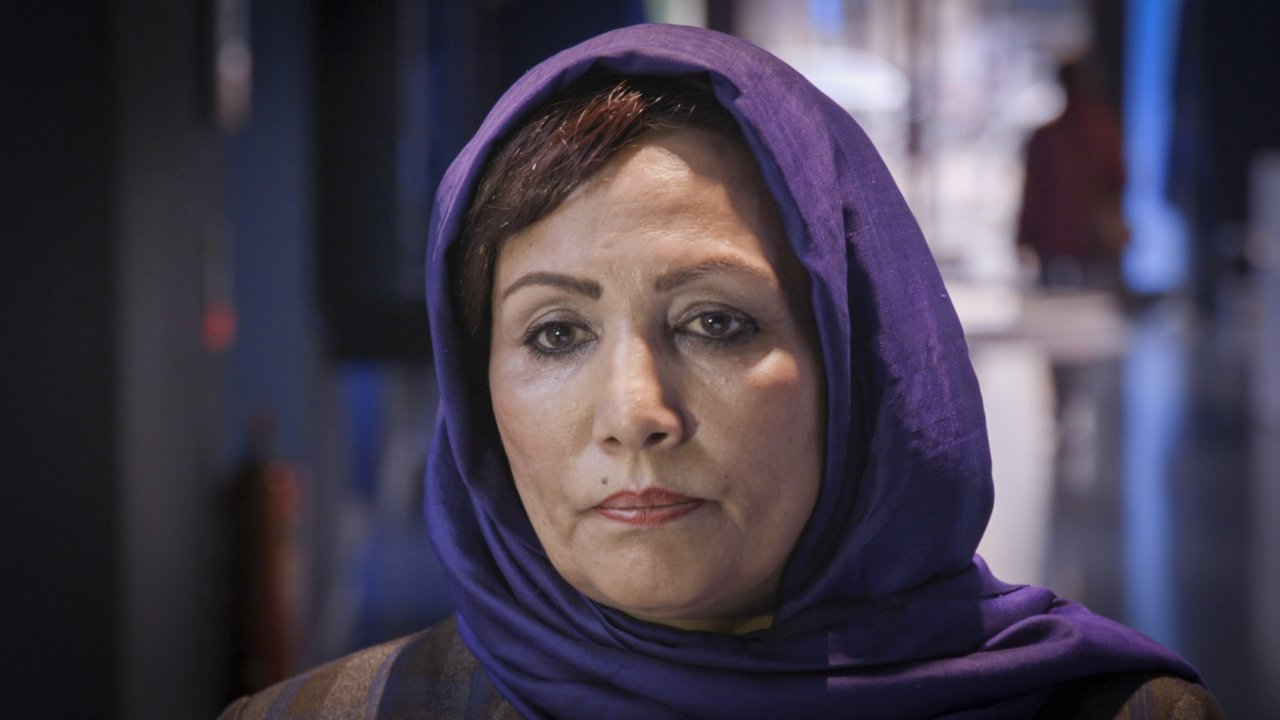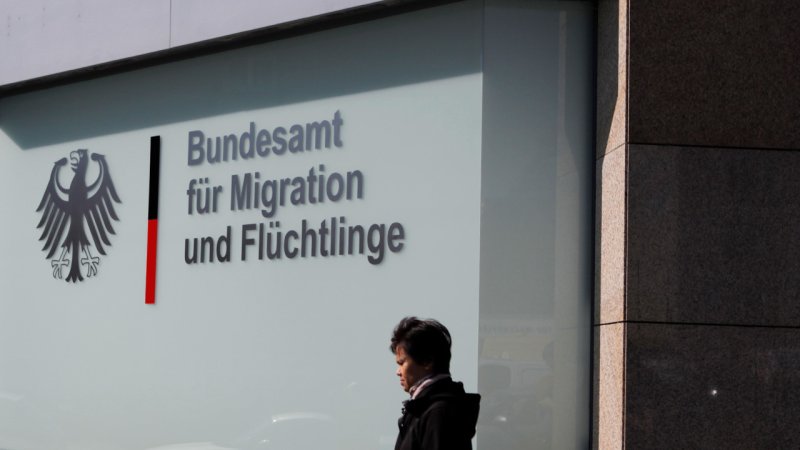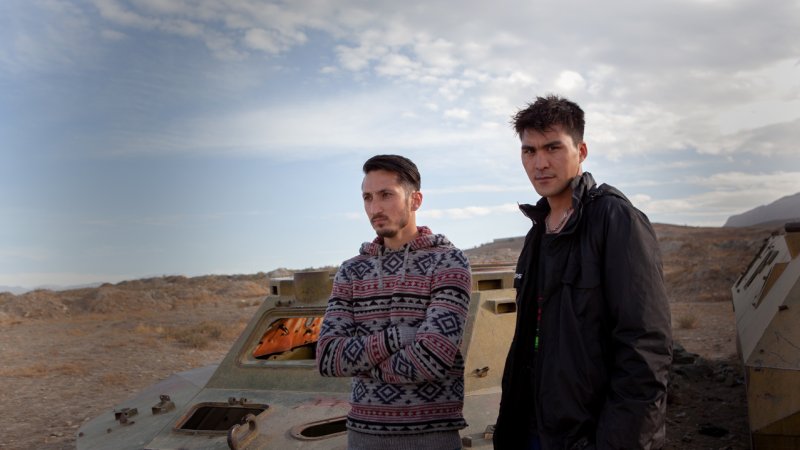Dublin Procedure

Which country is responsible for my asylum application?
The Dublin III Regulation determines the European country in which your asylum application must be processed. Before the hearing, there will be a short interview (known as a ‘Reiseweg-Befragung’). You will be asked how you travelled to Europe and Germany. The aim of this interview is to find out whether another EU country may be responsible for the asylum procedure.
If, for instance, your fingerprints have been first recorded and filed in another European country or in case you have applied for asylum somewhere else before Germany, that European country is responsible for your asylum procedure, which means Germany can send you back there.
The Dublin III Regulation applies in all the EU countries, as well as Norway, Iceland, Liechtenstein and Switzerland (the so-called “Dublin countries). In principle, the state responsible for your asylum application is the European country you have first entered when you have arrived in the EU or the one which has issued you an entry visa.
Attention: Although the United Kingdom is no longer part of the Dublin states following Brexit, new agreements are currently being concluded between the United Kingdom and individual EU countries that also regulate the return of refugees.
NEW: In May 2024, the EU adopted the reform of the Common European Asylum System (CEAS), which provides for numerous measures to tighten asylum laws. Member States must adapt their asylum systems by June 2026.
Part of the reform is the new ‘Asylum and Migration Management Regulation’ (““Asyl- und Migrationsmanagement-Verordnung””). It is intended to replace the previous Dublin III Regulation. What remains the same: As a rule, the country of first entry will continue to be responsible for the asylum procedure. New: The transfer period for ‘refugee’ persons can be extended to up to 36 months (previously 18 months). In addition, asylum seekers will in future only receive benefits in the responsible EU country.
Human rights organisations are critical of the reform. How it will be implemented in practice is still unclear.
What do I need to know?
The Dublin Regulation applies to you when:
your fingerprints have been recorded and filed in another "Dublin country" before Germany
you have applied for asylum in another "Dublin country" and your asylum procedure is still ongoing.
you have applied for asylum in another "Dublin country" but have later withdrawn the application.
you have applied for asylum in another "Dublin country" and your application has been rejected.
you have obtained a visa or residence permit (for example, due to a national ban on deportation) from another "Dublin country".
In all these cases, your asylum application in Germany will be rejected as "inadmissible" ("unzulässig"). The BAMF will ask you to leave Germany and order your "transfer" to the responsible European country.
As soon as you have filed your application for asylum, the BAMF will check whether Germany is responsible for your asylum procedure or not. The examination takes place with the help of the Eurodac database. This Europe-wide database stores the fingerprints of asylum seekers and other foreign citizens who enter Europe. The BAMF may also ask you for your travel ticket(s) to examine it as evidence. If the Dublin Regulation applies to you, the BAMF rejects your asylum application as "inadmissible" ("Unzulässig").
In this case, it will order your transfer to the responsible Dublin state. This means that you must be returned to that country within a certain period of time.
To carry out the transfer process, the BAMF has to follow some rules:
Germany must make a so-called "takeover request" ("Übernahmeersuchen") to the responsible European state, and they have to do so quickly. There are two deadlines Germany has to observe: the takeover request must be sent no later than two months after the German authorities found your fingerprints in the Eurodac system, or at the latest three months after your application for asylum has been received by the BAMF. If the authorities do not submit the takeover request on time, Germany will be responsible for your asylum procedure.
The other Dublin member state may refuse this takeover request if it is not able to accept you and your case.
If you have not formally applied for asylum in the other European country, in principle, they have two months to respond to the BAMF's request for the transfer. If the other European country does not react within two months, their lack of reaction will be understood as approval and Germany may transfer you to the other country.
If you have already applied for asylum in the other European country, they will have two weeks to one month to respond to the BAMF's request. If they do not react within the deadline, It will be understood as approval and Germany may transfer you to the other country.
When the deadline expires without any response from the other country or in case the other state approves the takeover request, Germany has 6 months to send you back there (the so-called ‘transfer period’). If you are not transferred within 6 months, Germany will be responsible for your asylum procedure from then on. Attention: If you are imprisoned, Germany will have 12 months to transfer you to the country responsible for your case. And if you prevent the transfer by, for instance, going into hiding, the deadline for your transfer will be extended to 18 months. If you, for example, do not live in your accommodation centre for over a week and the BAMF learns about it, they may assume that you have gone into hiding.
Please note: When Germany rejects your asylum request as "inadmissible" ("unzulässig"), that does not automatically mean that the other country will also reject your application. In Dublin cases, such a rejection only means that Germany is not responsible for your case- so, your application for asylum will be thoroughly examined in the European country responsible for your case.
You must not be transferred to another Dublin member state in the following cases:
Your spouse or underage children are recognised as a refugee or as an individual entitled to asylum or subsidiary protection in Germany.
Your spouse or minor children have applied for asylum in Germany, and Germany is responsible for their asylum application.
You have fled your country as an underage child and without your parents, but the odds are not in your favour if you apply for family reunification to reunite with your parents, siblings or other relatives in the Dublin country responsible for you. This rule applies to you also when you do not have any family in Europe.
You are seriously ill, and your condition can severely worsen by getting transferred. You need to present various medical certificates to prove your illness. However, the hurdles are very high, since it is generally assumed that serious illnesses can be treated medically in all EU member states.
Germany decides to invoke the sovereignty clause, specified in the Dublin regulation. By doing so, Germany voluntarily assumes responsibility for your asylum application. However, this clause is used rarely and only in exceptional cases of hardship, e.g. for sick or traumatised individuals, etc.
You are entitled to be personally asked by the BAMF about your flight route, your state of health and the whereabouts of your family members. In this interview, you should explain why you cannot return to the other Dublin country. Legitimate reasons, for instance, could be: homelessness, lack of access to medical care, maltreatment, imprisonment, or your family's residence in Germany.
The BAMF must inform you (in your language) about the Dublin procedure and the current status of the transfer request sent to the other Dublin country. You are entitled to ask for the current state of your Dublin case regularly and must have access to your file
If you want to return to the other Dublin country voluntarily instead of getting trandferred there, you must be allowed to do so.
If you move to another accommodation, you must notify the BAMF of your new address. You are responsible for doing so in order to receive important mail, such as the decision, in good time and to be able to lodge an appeal if necessary. Otherwise, there is also a risk that the BAMF may assume that you went into “hiding”. If you go into hiding, BAMF's deadline for your deportation will be extended (from 6 months) to 18 months. You can read more about the transfer period in the section ‘How does the Dublin procedure work?’
Asylum seekers can receive financial support from the state. This support is called asylum seeker benefits or “Asylbewerberleistungen”. Since the end of October 2024, individuals will lose their entitlement to these benefits if all of the following conditions apply to them:
● Their asylum application has been rejected as ‘inadmissible’ in a Dublin procedure.
● The BAMF has ordered their transfer.
● The BAMF classifies their departure as ‘legally and factually possible’.
● They have not received a “Duldung”.
According to the law, these persons will only receive so-called ‘bridging benefits’ (“Überbrückungsleistungen”) for 14 days, which are only intended to cover the physical minimum subsistence level until deportation. These include:
● Food, accommodation, heating, personal hygiene and health care
● Treatment of acute and painful illnesses
● Medical and nursing services during pregnancy and childbirth
● No cash benefits
● No benefits for ‘necessary personal needs’ (so-called ‘Taschengeld’)
● No additional benefits under Section 6 of the Asylum Seekers Benefits Act (AsylbLG), which are necessary for the needs of vulnerable persons such as persons with disabilities or persons in need of care
Only in a few exceptional cases of particular hardship are additional ‘hardship benefits’ (“Härtefallleistungen”) available:
● Clothing, household items and consumables
● Preventive medical check-ups and vaccinations
● Additional benefits for children (benefits for education and participation, unrestricted healthcare, integration assistance, etc.)
After these 14 days have expired, no further benefits are paid. Only in exceptional cases of particular hardship are ‘bridging benefits’ (“Überbrückungsleistungen”) granted after this period. Please note: This exclusion from benefits originally only applied to cases in which a refugee already had valid protection status in another EU country. However, since 31 October 2024, it has been extended to so-called ‘Dublin cases’. This has been criticised by numerous human rights organisations and welfare associations as unconstitutional, contrary to European law and inhumane.
However, this law is not applied everywhere, and several social courts have already declared this exclusion of benefits to be inadmissible. Therefore, if you are affected by the exclusion of benefits, it may be worthwhile to contact a counselling centre immediately and seek support. You can find out how to find a counselling centre or lawyer in the section ‘Where can I find advice and support?’.
You can appeal the rejection of your asylum application as "inadmissible" ("Unzulässig"). You must file the appeal at the responsible administrative court, the name and address of which is specified at the end of your rejection notice under the headline "legal remedies" ("Rechtsmittelbelehrung").
You have one weeks to file the appeal, starting from the date indicated on your rejection notice's envelope.
It is worth keeping the envelope containing the documents. However, in Dublin cases, the appeal does not have suspensive effect, which means that you can still be transferred during the appeal proceedings. It is therefore recommended that you submit an urgent application in addition to the appeal. You also have one week from the date of delivery of the notice to do so.
If you have successfully applied for asylum in another Dublin member state and have been recognised as entitled to asylum, refugee status or subsidiary protection, your application for asylum in Germany will be rejected due to "entry from a safe third country" ("wegen der Einreise aus einem sicheren Drittstaat. Such a ruling has to do with the so-called "third country regulation" ("Drittstaatenregelung").
As a recognised refugee or asylum seeker who comes from another Dublin state, you may travel to Germany and spend 90 days in the country, but you are not allowed to live or work here permanently. If you do not leave after 90 days, you may be transferred back to the other EU country.
You have the right to file a complaint at the administrative court when your asylum application has been rejected in Germany. After receiving a rejection notice, you have one week to file a complaint and an urgent appeal ("Eilantrag"). Submitting an urgent appeal, in principle, prevents you from being tranferred before the court's decision. If you do not have chances of accessing shelter, food, job, etc. in the country in question, you may win the complaint against the rejection of your asylum application. Make sure you seek advice from a lawyer. You can find out how to find a counselling centre or lawyer in the section ‘Where can I find advice and support?’
You can search for asylum procedure counselling in your area on BAMF-Navi. You can also take advantage of the services offered by MBE and JMD. You can also search for an counselling centre in your federal state on proasyl.de. Or use Pro Asyl's individual case counselling service via email in German and English. In addition, a refugee council can offer you support. You can find the refugee council responsible for you at fluechtlingsrat.de. You can find out how to find a lawyer at Life Initiative.
Important
Counselling and support from a lawyer is crucial in ‘Dublin cases’. You have the right to be represented by a lawyer. You can find out how to find at Life Initiative.


